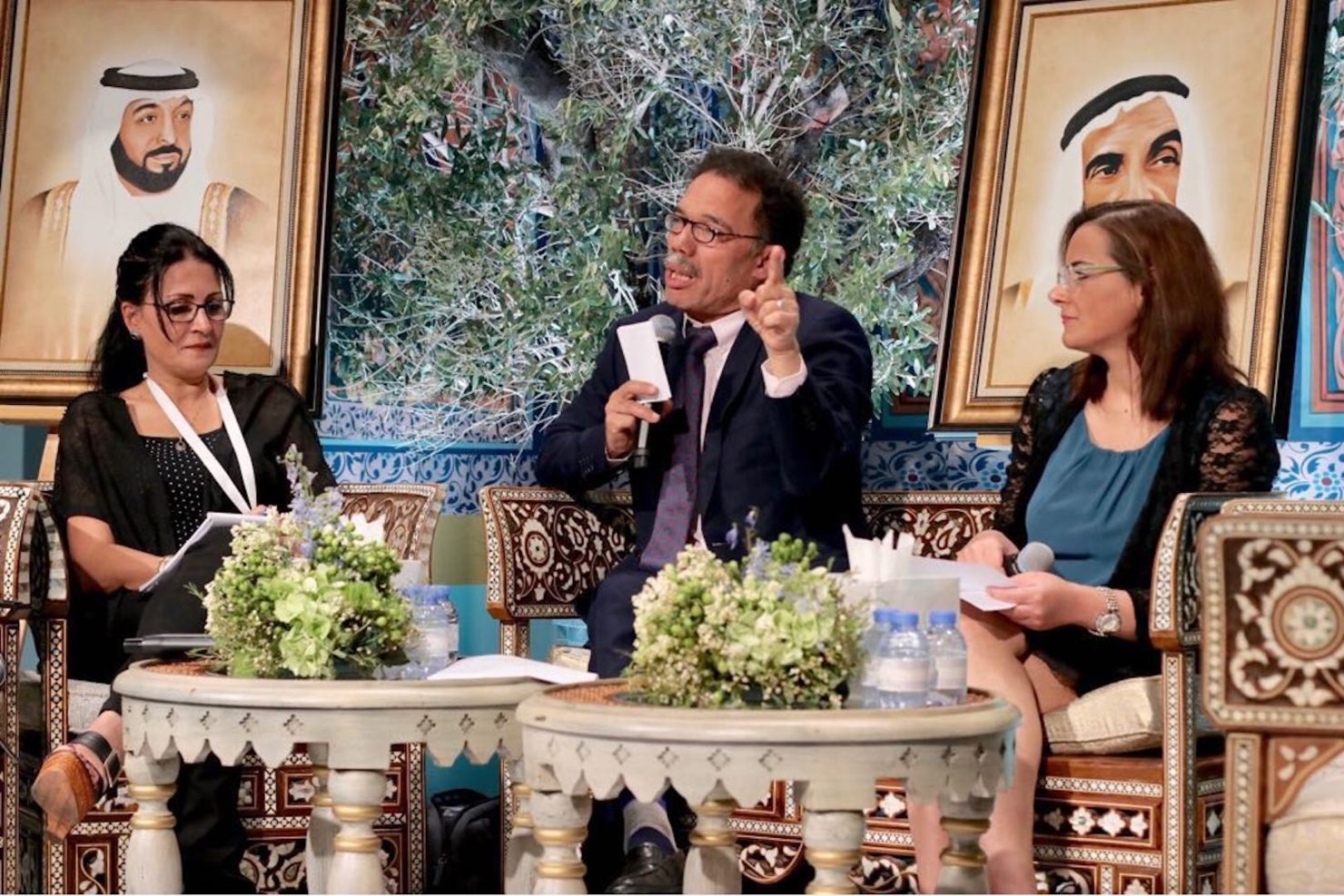The Sea of Culture Foundation’s Literary Salon, a prestigious platform for cultural and literary discussion at this year’s Abu Dhabi International Book Fair, today hosted a talk on the role of reading in personal value and skill development, as well as an insightful debate on the importance of literary criticism. At a session entitled ‘Read and Rise’, Khalifa Al Mehrazi, Social Counsellor, stressed that effective reading skills stem from the early inculcation of reading habits in children. He noted that children who witness their parents reading regularly are more likely to grow up as enthusiastic readers. The lecture received an overwhelming response from a captive audience of adults and children.
Al Mehrazi said that the process of instilling good values and positive habits in children should be complete by the time they reach the age of 15. The child’s environment, such as the school, street, friends, and the media, along with other factors, has a strong influence on the development of knowledge and values. He stressed that parents are responsible for ensuring their children adopt the right values so that they can develop into well-adjusted individuals who can make positive contributions to their communities.
At the second session, held under the theme ‘Writer, Reader, Critic: Where is the Absent Party?’, Prof Dr. Khairy Douma, Director of Cairo University Center for Arabic Language & Culture and Manal Abdel Ahad, writer, and journalist, discussed the role of criticism in the Arab literary scene.
Dr. Douma said: “The growing influence of blogs and social media used by lay readers and non-scholars has undermined the scientific basis of literary criticism. In today’s literary landscape, the role of criticism in developing new literary talent or shaping emerging trends has changed. Critical writing now all too often tends to take the easy path of following the whims of the public, and critics have lost sight of their real role in evaluating the merits of literature.”
He added: “Some critics are apt at bridging the gap between a specialist audience and general public to produce scientifically sound reviews that also appeal to the common reader. However, they should never compromise their integrity to pander to the tastes of the public.”
Speaking on the current role of literary criticism in the Arab world, Dr. Douma argued that there is a lack of genuine and constructive criticism today and that the dominant genres have no significant impact on the progress of Arab literature because they lack the necessary academic foundation. Critics should aim to position works on the literary history map and contribute to the development of the literary process.
For her part, Abdel Ahad suggested that today’s literary critics often opt either for unequivocal praise or unwavering criticism, while neutral opinions are increasingly rare. She pointed to the rise of a new style of criticism that seeks to market or promote ‘cultural goods’ purely as propaganda. As a result, some writers adopt a casual approach to their work, aiming to satisfy a certain category of critics at the expense of literary quality. She also noted that personal relations between critics and writers in some cases explain the disregard for a scientific approach when reviewing literature.
Abdel Ahad stressed that the emergence of ‘cultural lobbies’, or closed literary circles, had disrupted traditional relations with critics to the extent that these lobbies have taken control of the creative product in terms of quality as well as direction. She argued that the integrity and quality of global literature rest on the ability of readers to recognise the difference between ‘cultural goods’ and creative achievements. Abdel Ahad emphasised the importance of encouraging such conscientious readers in society to provide intellectual, moral and theoretical guide to the next generations, as they will be responsible for preserving the quality of literature and other creative arts.
Offering fascinating insights into the UAE’s illustrious history and the country’s rich and diverse cultural heritage, the Sea of Culture Foundation’s Literary Salon provides a forum for a stimulating exchange of insights between prominent cultural personalities and intellectuals. The event aims to engage and educate the youth that will form the UAE’s next generation of leaders.
Organised by the Abu Dhabi Department of Culture and Tourism, the Abu Dhabi International Book Fair 2018 is the latest edition of the fastest-growing event of its kind in the Middle East and North Africa. The fair concludes on 1 May at the Abu Dhabi National Exhibition Centre.
